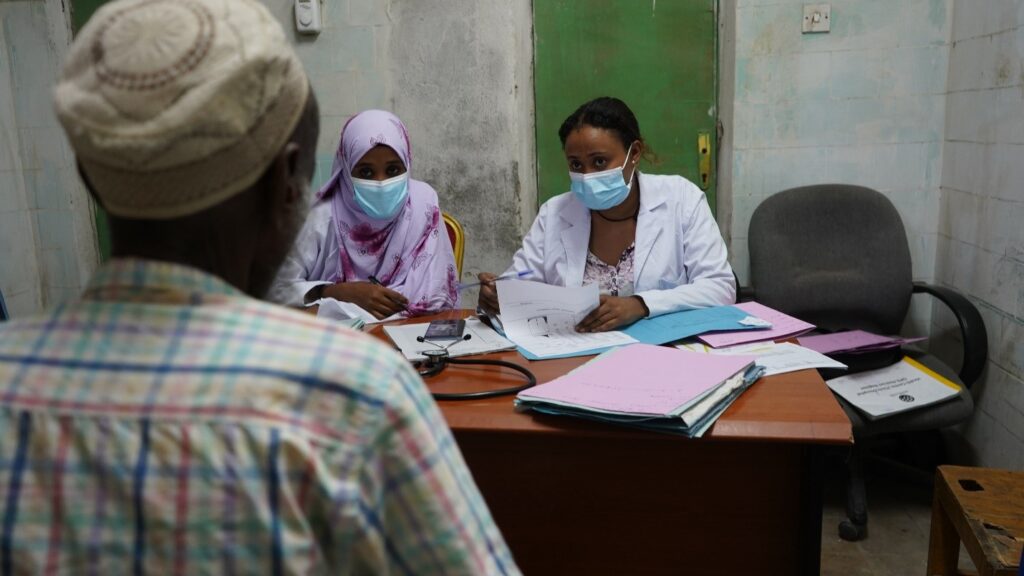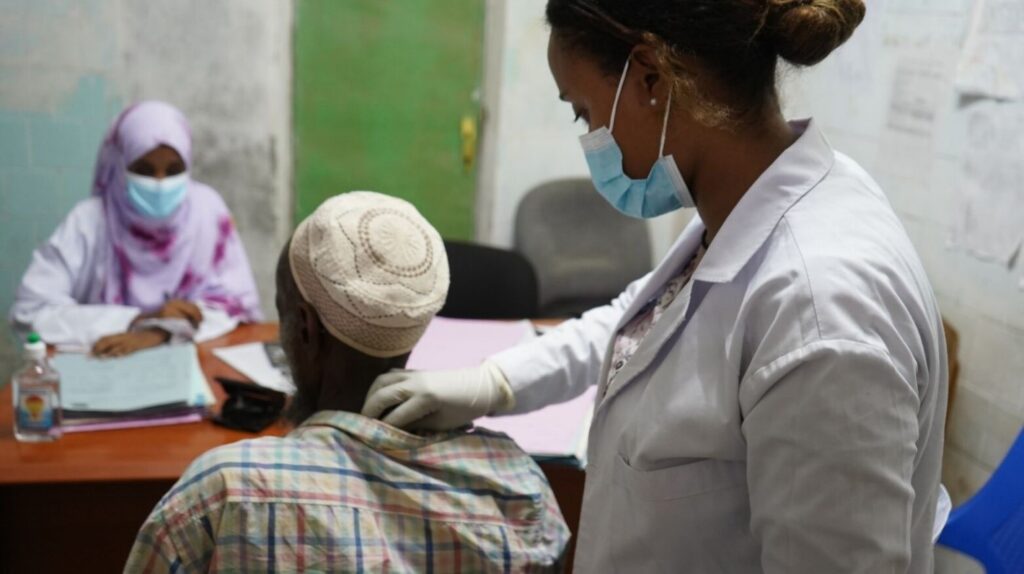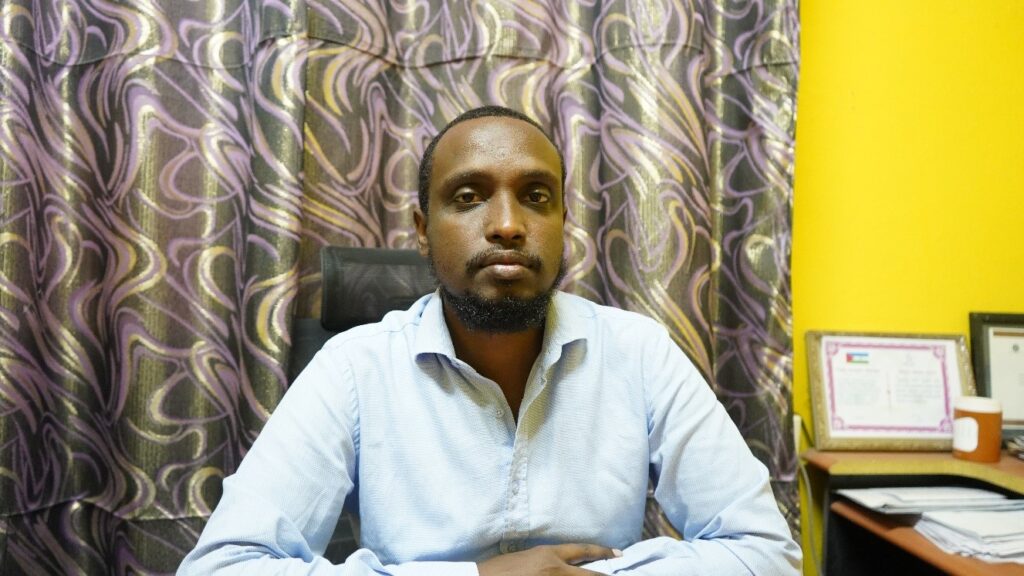
Every morning before 7 a.m., about 20 clients would gather in the outpatient area of Dubti General Hospital in Afar Region, Ethiopia. Mostly women and children, they waited their turn to talk with a doctor about their health concerns. Elderly men and women sat on wooden benches while mothers stood nearby, trying to soothe a sick child or cradling a sleeping baby. After a 25-kilometer walk, some clients arrived exhausted and found a spot on the floor to sleep.
This had become routine for the busy Dubti General Hospital’s outpatient unit as essential services slowly resumed in the months following a November 2022 ceasefire that ended a one-year conflict in north Ethiopia.
“Physicians see up to 50 cases a day at the outpatient department [OPD]. Malaria, pneumonia and schistosomiasis are the most prevalent conditions. There is a high number of adult and child patients. Every day, doctors work in all OPDs, examining up to 25 to 30 patients in the morning and 15 to 20 in the afternoon. Often, additional cases are referred here by other health facilities in the region for further investigation and treatment,” says Dr. Mekedes Zenebe.
Dr. Mekedes is one of the 476 multi-disciplinary health workers who, from February 2023 through November 2023, were deployed in Afar, Amhara and Tigray by the U.S. Agency for International Development-supported, Jhpiego-led, Health Workforce Improvement Program (HWIP) with COVID-19 supplemental funding.
The conflict in north Ethiopia, which occurred between November 2021 and November 2022, killed thousands and displaced millions. The fighting also destroyed health facilities and displaced health workers, leaving millions of people in Afar, Amhara and Tigray without access to basic health services. In Afar, 188 health facilities were destroyed or partially damaged. Assessments conducted in June 2022 in the two most affected zones showed 507 out of 701 (71 percent) of health workers had not reported to work.
HWIP has supported post-conflict recovery of essential health services in Afar, Amhara and Tigray regions during the past year. One of the project’s key responses was deploying health care teams to under staffed facilities; Jhpiego deployed 86 health workers in Afar region to fill the gap.

“We were able to fill the shortage in the health workers, thanks to Jhpiego. The deployed health workers managed a variety of patient caseloads. Since these health workers arrived, we have observed how the patient flow has increased and cases are managed well. Data from health centers indicate that the patient flow has increased since the deployed health workers began their duties,” says Salhe Luogud, Human Resource Director for Afar Regional Health Bureau, which ensures provision of comprehensive health services for the community in the region. Dubti General Hospital is one of the main medical facilities in the Afar region. During the year-long conflict, health centers in various districts of Afar collapsed, leaving Dubti General Hospital with a huge patient load that was difficult to manage with the available staff. Jhpiego deployed 20 health workers in Dubti Hospital, including doctors, nurses, midwives, anesthetists, pharmacists and laboratory technicians.
Dr. Mohammed Yesuf, the medical director at Dubti General Hospital, said the deployed health workers have made significant contributions in the hospital and community.

“With the shortage of clinical pharmacists and anesthetists in our facility, it was challenging for us to get anyone to fill in these positions. Since the health care professionals arrived, there has been a noticeable difference at the Dubti Hospital,” Dr. Mohammed said. “It has been possible to provide patients with quality health care services. We only had two anesthetists, but Jhpiego sent out three more, which helped clear the surgical backlog. Due to Jhpiego’s boost in human resources, our hospital has seen a significant transformation.
“The lives of babies and women are saved—women give birth supported by Jhpiego’s skilled health professionals. With surgeries conducted by the health professionals, we are seeing babies and mothers walk out of this hospital healthy and happy,” Dr. Mohammed added.
Along with the deployment of temporary health workers to address immediate health needs, HWIP rebuilt the management capacity of human resources for health at the Afar Regional Health Bureau and periodically monitored return of displaced health workers to their duty station. Throughout last year, health workers returned to their positions, and as of November 2023, 87 percent were back on the job.

Dr. Tegbar Yigzaw Sendekie, Chief of Party of the Health Workforce Improvement Program, provided a technical review of this story.
Anteneh Teshome Habtemichael is a communications and knowledge management specialist in Jhpiego’s office in Ethiopia.



